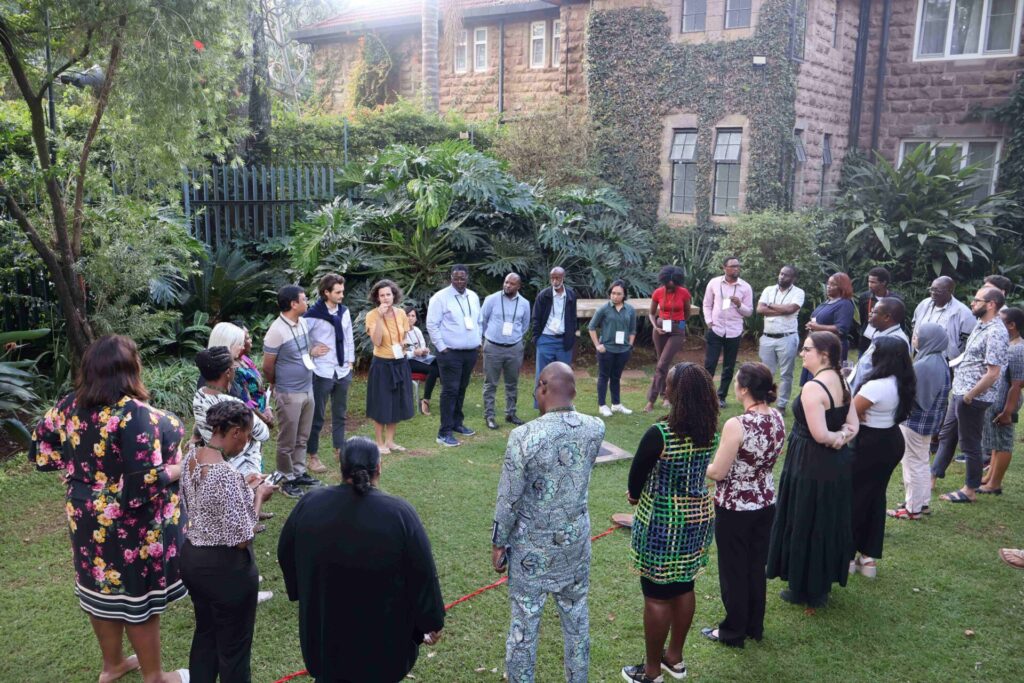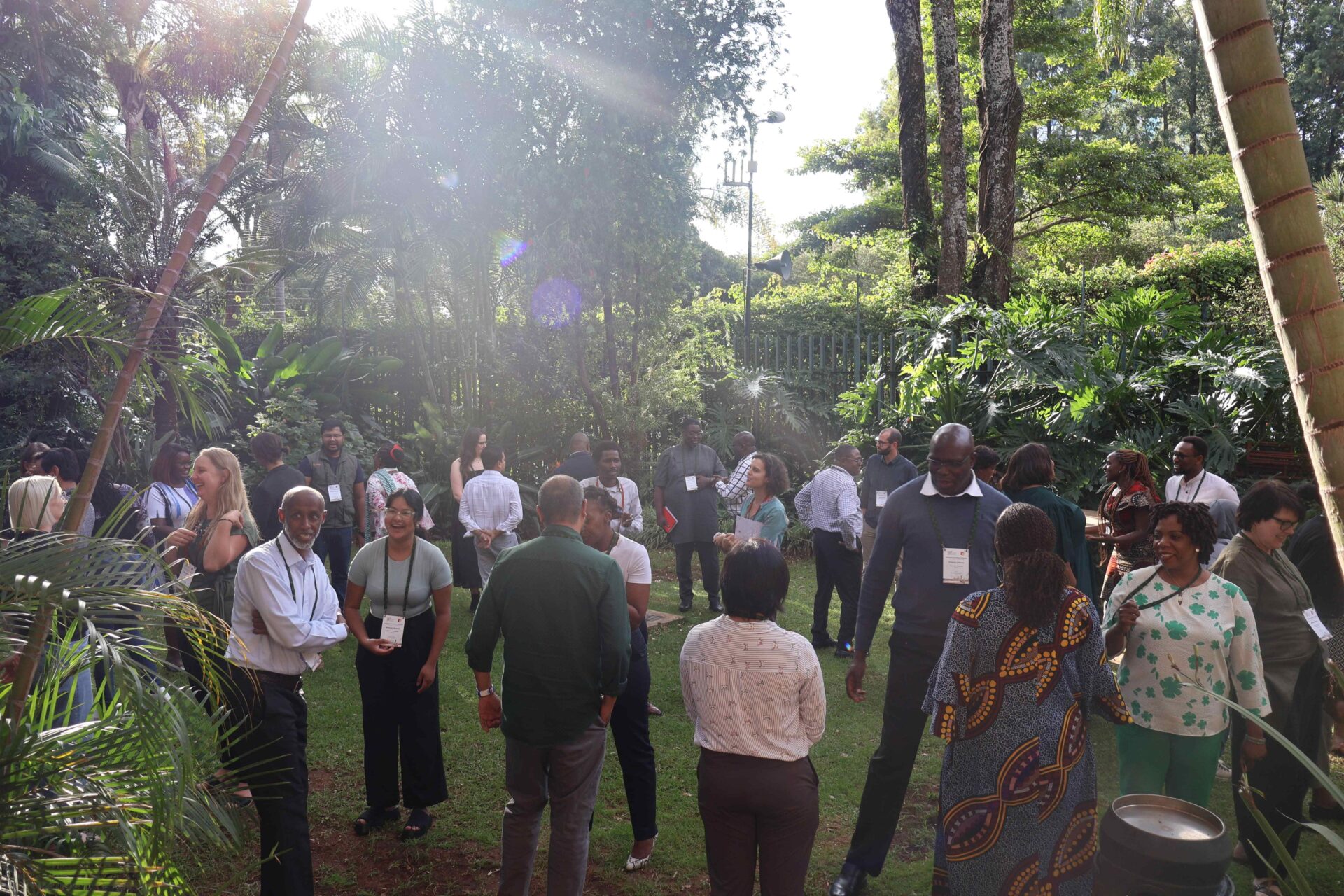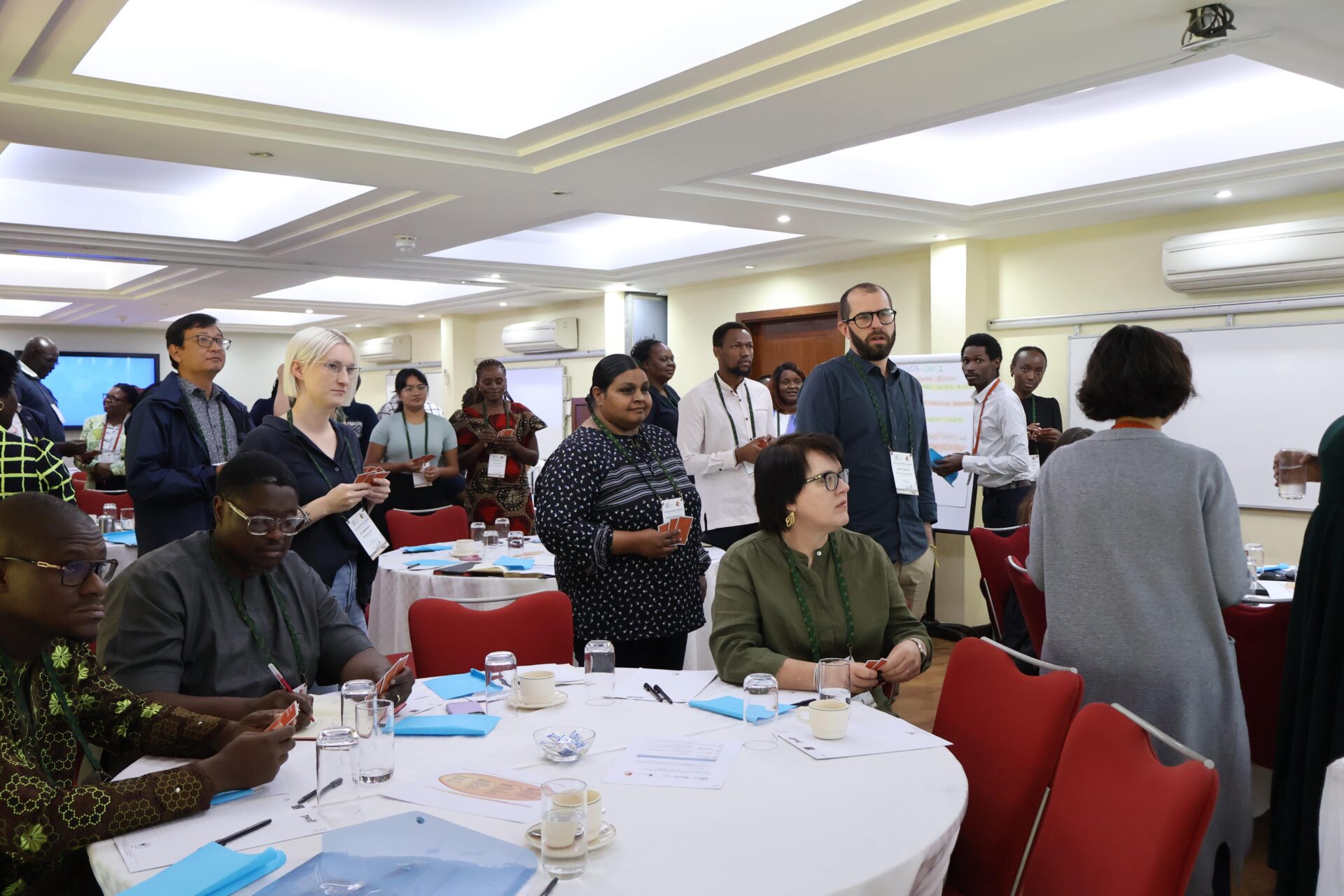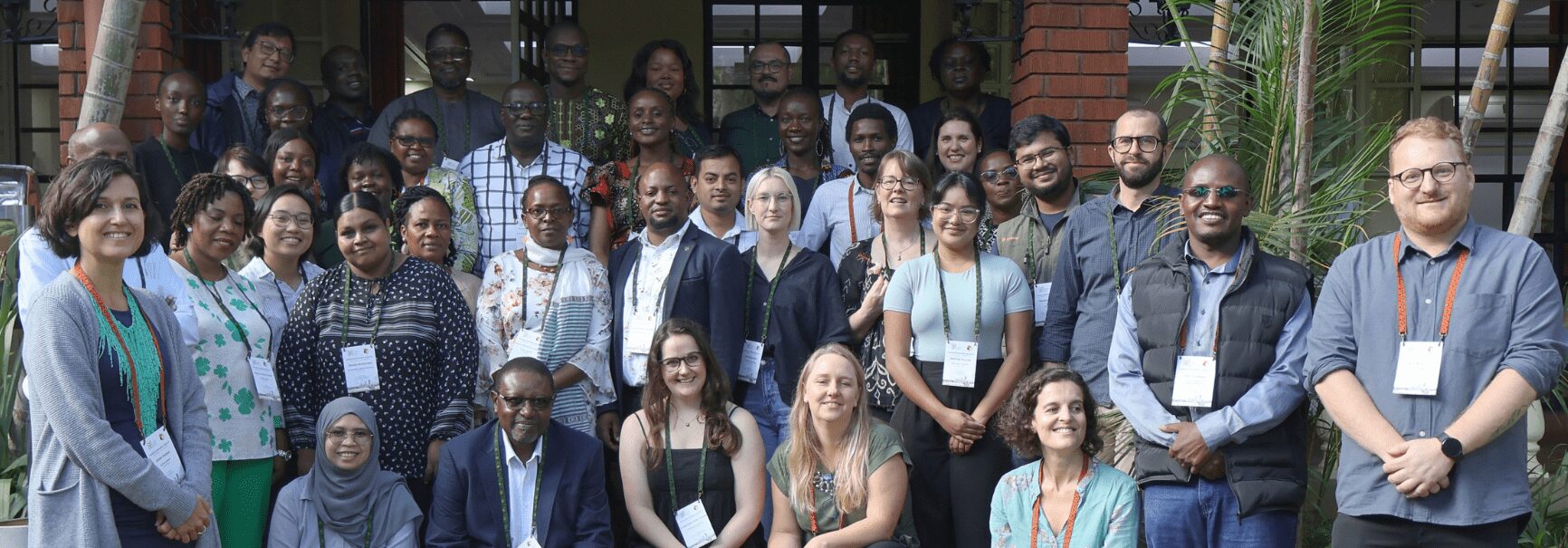Bridging the Gap: Insights from the Knowledge Brokering Workshop (KBW) from RECOVER
/
Authored by Mehnaz Hossain and Shazla Mohamed
The Knowledge Brokering Workshop (KBW), organized by SouthSouthNorth (SSN) in its role as the CLARE Research for Impact (R4I) Hub, and the African Centre for Technology Studies (ACTS), in collaboration with PlanAdapt as the CLARE Capacity Strengthening (CS) Hub, was held in Nairobi, Kenya from May 13 to 16, 2024. The workshop brought together participants from 23 CLARE-affiliated projects and organizations, including Mehnaz Hossain, project manager for RECOVER, and Dr. Shazla Mohamed, who leads the RECOVER team at Maldives National University.
The aim of the workshop was to deepen participants’ understanding of knowledge brokering principles while enhancing their skills in applying various tools and strategies to solve complex problems in the process of co-creation.

Participants were introduced to the spectrum of knowledge brokering– an introduction that emphasized the non-linear nature of a process that consists of infomediaries, knowledge translators, knowledge co-creators and innovation brokers. Each role is crucial in tailoring knowledge to different audiences, fostering collaboration, and driving systemic change. Knowledge brokering helps to uncover non-linear pathways to putting knowledge into use, navigate policy and practical spaces, work on convening power and, enables attempts at new interactive ways of getting the message of projects out.
Context is extremely important in knowledge brokering as well. Participants explored how socio-ecological environments influence the way challenges are understood and addressed. This context-driven approach is essential in ensuring that research and solutions are not only theoretically sound but also practically applicable.
The workshop also placed emphasis on the process of co-creation and the principles that projects should keep in mind when working with diverse communities and stakeholders. Co-creation is particularly valuable when addressing issues that research alone cannot solve. The workshop provided insights into managing expectations, building trust, and ensuring inclusive participation in co-creation processes. By fostering a sense of ownership among stakeholders, co-creation can lead to more sustainable and widely accepted solutions.


RECOVER was able to apply much of the knowledge on co-creation to its own work, particularly within the project’s fifth objective that makes use of Real-World Labs (RWLs). RWLs engage citizen scientists to provide feedback on project outputs and foster a sense of ownership within the communities involved. Insights from the KBW were instrumental in refining RECOVER’s approach to co-creation within the framework of the RWLs. These learnings on knowledge brokering, co-creation, and stakeholder engagement were incorporated into RECOVER’s RWL guide (publication forthcoming). Resources from the KBW shaped the project’s understanding of stakeholder engagement and its crucial role in participatory processes, as detailed further in this blog post on RWLs.
The workshop concluded with discussions on the challenge of translating knowledge into action. A large part of the day was dedicated to knowledge exchange and learning from all the different CLARE projects. The workshop wrapped up with an excursion to Kibera, one of Nairobi’s largest informal settlements to observe flood-prone areas and the implementation of nature-based solutions by a the Kounkuey Design Initiative (KDI).
For RECOVER, knowledge co-creation is a pivotal aspect of the project and a key factor in driving transformational change. The co-development of adaptation solutions through community engagement and fostering strong partnerships amongst communities, civil society, governmental institutions, and other stakeholders is essential to strengthening resilience in small island countries. The KBW highlighted the importance of collaboration, context awareness, and practical application in transforming knowledge into meaningful action. It provided a valuable opportunity to learn from other projects and colleagues.
According to Mehnaz Hossain, RECOVER’s project manager, ‘The skills and insights gained from this workshop will undoubtedly enhance RECOVER’s ability to bridge the gap between knowledge and action, ultimately contributing to more resilient and informed communities.’
RECOVER is grateful to CLARE, SSN, ACTS and PlanAdapt for the opportunity to take part in the KBW.
Categories
Countries
CLARE Pillars
CLARE Themes
CLARE Topics
Published
CLARE Projects
CLARE Partners


